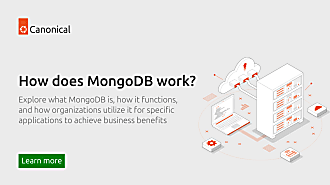Chris Kenyon
on 25 February 2013
Ubuntu Phone OS integrates with Orange and Deutsche Telekom in GSMA OneAPI initiative
Mobile World Congress kicks off today and we’re gearing up to show off Ubuntu running on multiple devices. We’ll be demonstrating phones, tablets and desktops at the stand, have Ubuntu developers flashing spare hardware, as well as be showing integration and interoperability with Orange and Deutsche Telekom through the GSMA’s One API initiative.
GSMA’s OneAPI initiative aims to provide application programming interfaces (APIs) that enable applications to exploit mobile network capabilities, such as messaging, authentication, payments and location-finding with a cross-operator reach. For example, a payment network API could be used to add an in-app purchase directly to the user’s mobile phone bill.
Ubuntu is the first smartphone operating system to be able to demonstrate integration and interoperability with a carrier’s authentication and billing systems. Working with Deutsche Telekom and Orange, we’ll show how a single API can be used to instantly log users in with their operator identity and seamlessly link that with Ubuntu One, Ubuntu’s identity and payments services, and provide carrier billing options upon purchase of music and eventually, apps.
This is a massive step forward for the industry as the GSMA and partners such as Canonical, are spearheading an initiative to standardise access to operator facilities via network APIs across all operators. The initiative will benefit operators, developers and consumers:
- It puts operators in a position to forge stronger relationships with their customers.
- For developers, OneAPI reduces the time and effort needed to create applications for and content that is portable across mobile operators, increasing reach and ultimately enhancing the consumer experience.
- For consumers, it makes it really quick and easy to make application purchases directly from their phone. It’s also more secure because it’s not necessary to input credit card details for each purchase.
Also at Mobile World Congress:
- Mark Shuttleworth, founder of Ubuntu, will participate in a keynote panel discussion alongside Mozilla and Tizen on Tuesday 26th Feb at 18.00 at the MWC Conference Auditorium and broadcast live on Mobile World Live
- We’ll be taking part in the App Developer Day on Tuesday 26th Feb. Stuart Langridge, technical architect at Canonical will be presenting the Ubuntu phone, SDK, HTML5 and native apps as well as discussing app development for Ubuntu on phones and tablets. We’ll also have engineers available at the event to flash spare handsets with Touch Developer Preview of Ubuntu. This will take place from 9.00-9.30 and 11.40-11.55, and 13.30-14.00 in Hall 8.0, Theatre A.
- The GSMA Seminar on “Unlocking Value with Network APIs” will run on Thursday 28th from 9am to 10.30 am in Room CC1.1. Canonical’s Stuart Langridge will present and demo the Ubuntu Phone during the session. We’ll also be demonstrating Ubuntu’s OneAPI solution at the GSMA stand daily.
- Look out for Ubuntu engineers who will flash spare hardware with developer images for phone and tablet throughout the show close to the Ubuntu stand.



